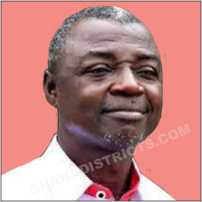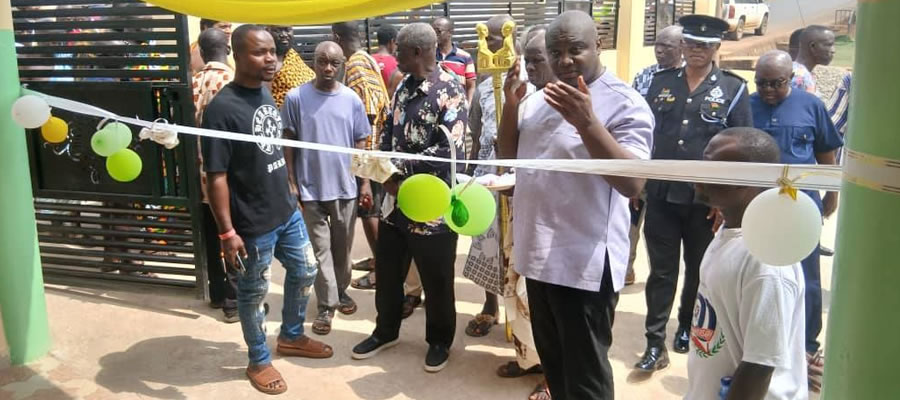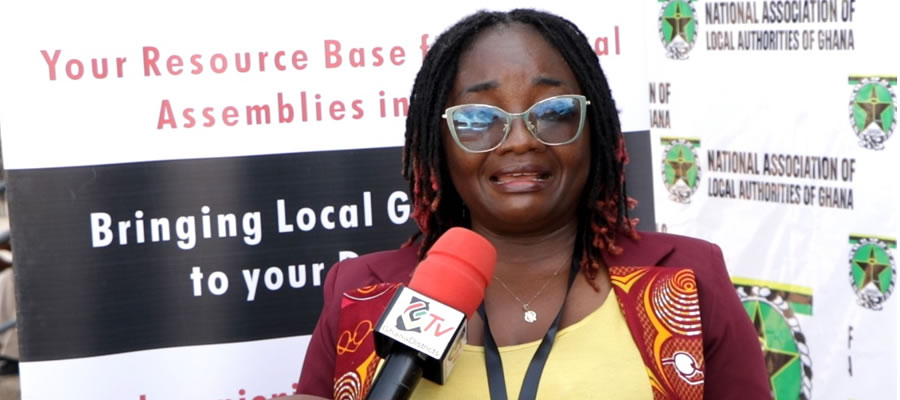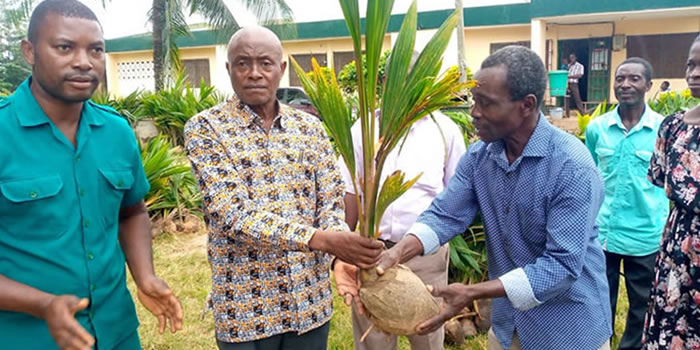

Culture
Traditional set up
Kibi the capital of the Abuakwa South municipality is the capital of the Akyem Abuakwa traditional area and hosts the Ofori Panin Fie while Kukurantumi, the capital of the Abuakwa North Municipality is the Adonten Fie and Old Tafo is the Awansa Fie. The Okyehene is the overlord of the entire Akyem Abuakwa traditional area with a number of divisional chiefs who sit in counsel with him. The traditional structure reflects a local decentralization system that promotes popular participation and development. The Akyems are noted for the celebration of Ohum festival which has become an avenue for local development and tourism promotion.
The Akyems are highly friendly and hospitable which is rooted in their respect and reverence for their rich cultural heritage. The hospitality of the Akyems is reflected in the numerous ethnic groups that have permanently settled in the municipality with majority of them being farmers and mining workers.
This notwithstanding, there are a number of local chieftaincy disputes related to succession in communities such as Osiem and Anyinasin which need to be addressed to undue delays in the development of affected communities. There is also low level of communal spirit among the citizens resulting from apparent politicization of development in the municipality a situation which requires urgent attention from all stakeholders.
Development Implications
The rich cultural heritage of the people of the municipality and the hospitable nature of the inhabitants could be purposefully explored to bolster tourism and attract investment into the municipality. This calls for a greater collaboration between the Assembly and traditional authorities in a spirit of mutual respect. In that marner some of the negative tendancies associated with chieftaincy and cultural sterotypes could be dispassionately discussed and addressed.
Ethnicity and Religion
Extrapolating from the 2010 Population and Housing Census held in the erstwhile East Akim Municipality which Abuakwa North formed a significant part, 5 main ethnic groups exist in the municipality. These ethnic groups comprise Akyems, Krobos, Asantes, Akuapem, Northerners and Ewes. The Akyems form the majority of the ethnic tribes in the municipality. Records available show that a total of 8,982 persons representing 5.3 percent of the population of East Akim is not affiliated to any religion.
Nevertheless, majority (86.9%) of the population in the district are Christians; with Pentecostal/Charismatic dominating with a proportion of 37.1 percent, followed by the Protestants (30.5%), other Christians (14.2%). People of the Islamic religion are (6.5) percent, while Traditionalist and others are less than (2) percent. For the sexes, there are relatively higher proportions of female Christians compared with male Christians who are members of Pentecostal/Charismatic churches (39.2% against 35.0%) and Protestant churches (31.6% against 29.3 %). On the other hand, there are more males than females who profess to the Traditional religion (0.8% vs. 0.5%).
Development Implications
The multi-ethnic and religious nature of the municipality makes it a melting pot which in itself can promote rapid development devoid of parochialism. Conscious steps would however need to be taken to make it a close-knit society and open-minded society.
Participation
Even though Abuakwa North is a very young Municipality, it is beginning to assert itself as a shining light in the area of citizen’s engagement and participation in the development programmes and projects of the municipality. This is because the leadership of the Municipal Assembly believes in the potency of the collective and the need to court the trust and support of all stakeholders through a transparent and accountable leadership.
The Assembly therefore employs avenues such as the preparation of Annual Budgets and Plans, Fee Fixing consultations, project management practices such as introduction of contractors to site, participatory monitoring and evaluation as well as Town Hall meetings create awareness and promote community and stakeholder involvement in the programmes of the Assembly.
The Assembly also takes interest and participates in the programmes and events of the Chieftaincy set up especially during the observance and celebration of traditional rites and festivals. Nananom are also consulted and their view incorporated into the Assembly overall development framework.
Such engagements as well as avenues such as local FM stations, writing of letters and petitions and personal calls on the offices of the Assembly by citizens enables the Assembly to gather the concerns of the people as well as feedback on its activities and interventions.
While the Assembly appreciate, the urgent need to mobilize funds from local sources, its approach has been to educate the people to understand and come to terms with those social and legal obligations and how their compliance promotes the general good. In effect, while the Assembly has vigorously pursued the mobilization of Internally Generated Funds (IGF) through the involvement of management and other staff to complement the efforts of the revenue collectors, it has generally employed education through the use of the announcement van for people to pay their taxes and avoid persecution at the law court.
The effect is that companies, and Property owners have begun to show commitment and a sense of responsibility to their tax obligations as well as in the area of corporate social responsibility.
There is also a vibrant Assembly which deliberates dispassionately on issues in the Municipality and which has been supportive of management in its bid to promote excellence in all sectors of the municipal economy.
Development Implications
As a new Assembly, the culture of citizens’ involvement in the governance and development process ought to be institutionalized and firmly planted in its core values. This will ensure transparency, citizens’ ownership of the development process, public trust and cooperation and rapid development.
Tourism
The municipality has a few sites of historic and aesthetic importance. These include the Agyemprem watershed and monumental rocks and the sacred forest at Kukurantumi. The CRIG Golf Park also attracts several eminent personalities and tourists. Even though tourism is one of the leading foreign exchange earners for Ghana, its development in the Abuakwa North municipality is minimal. The municipality’s attractive sites should be developed and promoted to attract tourists to the municipality and hence provide employment and revenue.
Tourism Development
The development of tourism and provision of hotel accommodation are inseparable. Tourists need comfortable accommodation and restaurants to provide both local and continental dishes. Presently, there are a few hotels located in the municipality with a potential for more in addition to decent restaurants. In order to reap the full benefit of the potential tourist sites, the Assembly shall create the enabling environment by developing tourism infrastructure like efficient transportation facilities, water and electricity supply, telecommunication and also ensure public safety at tourist sites. The Assembly will however require active involvement of the private sector and the technical support of the Ghana Tourist Board in this direction. Table 1.20 shows a list of hotels and restaurants in the municipality.
Date Created : 3/22/2019 6:24:58 AM









 facebook
facebook
 X
X
 Youtube
Youtube
 instagram
instagram
 +233 593 831 280
+233 593 831 280 0800 430 430
0800 430 430 GPS: GE-231-4383
GPS: GE-231-4383 info@ghanadistricts.com
info@ghanadistricts.com Box GP1044, Accra, Ghana
Box GP1044, Accra, Ghana